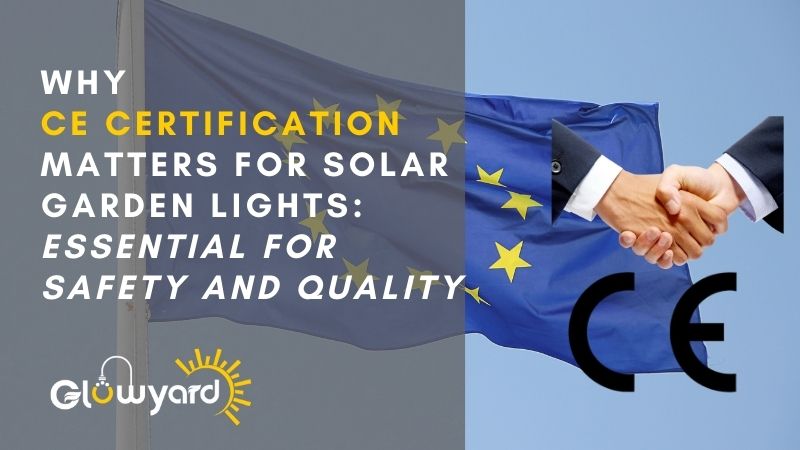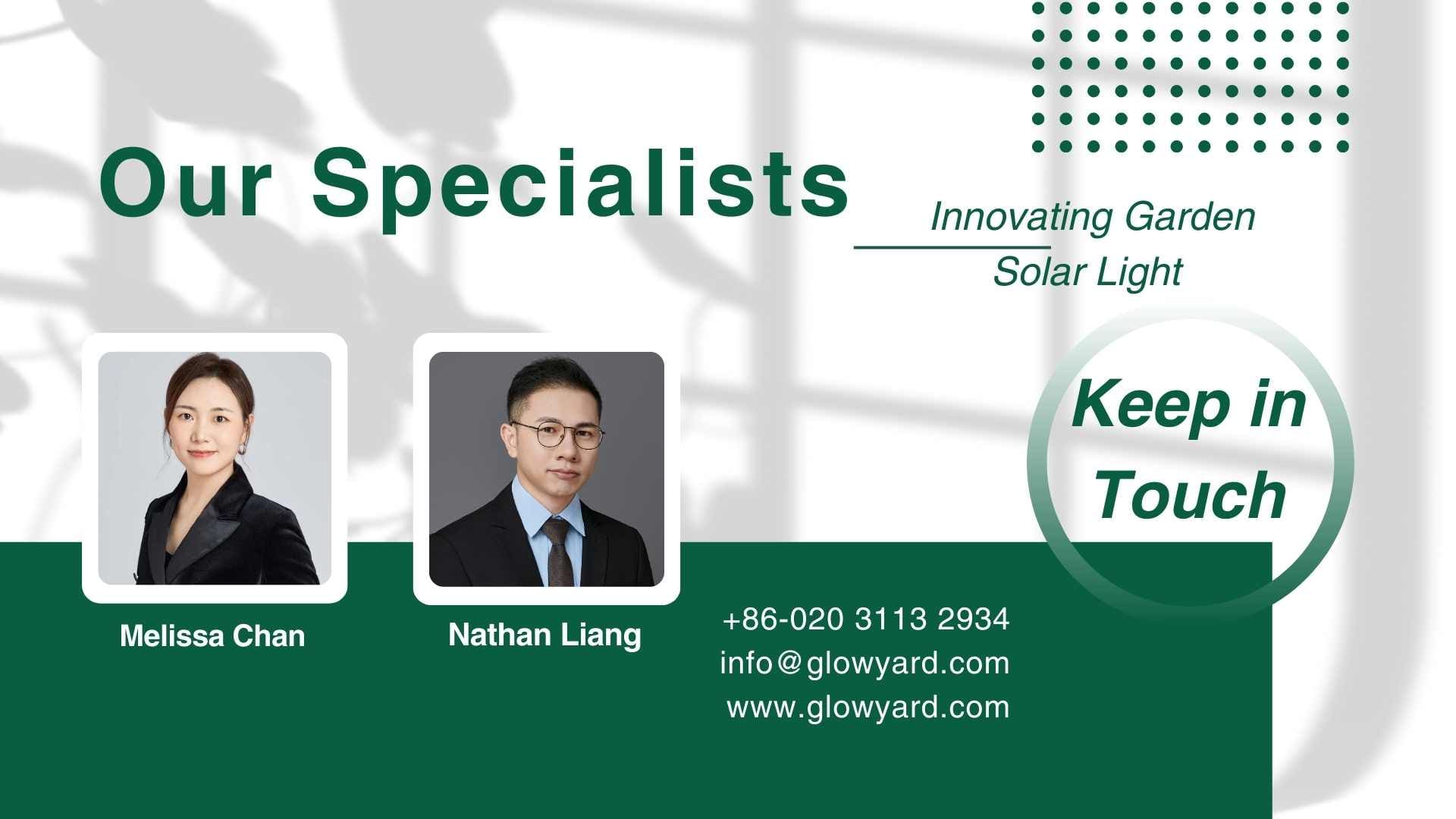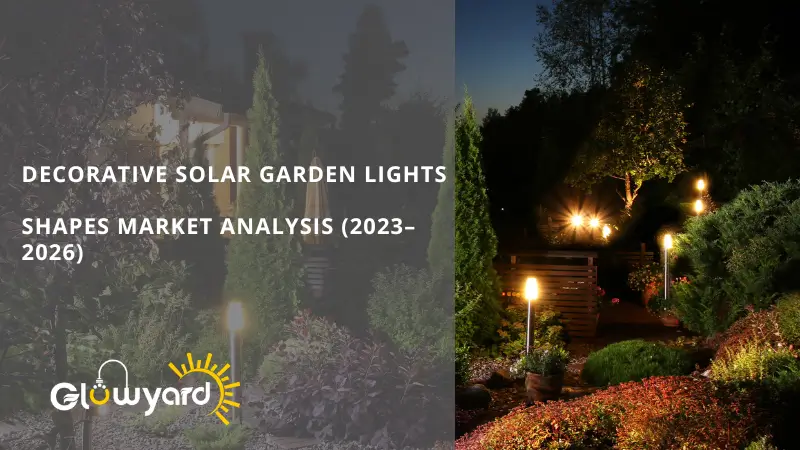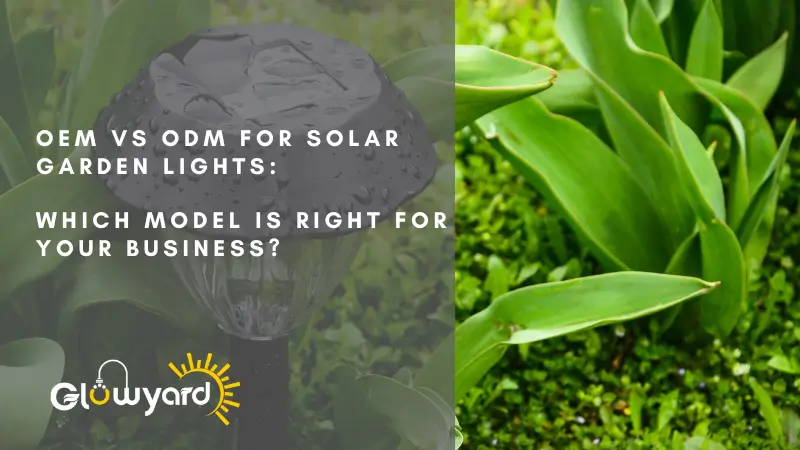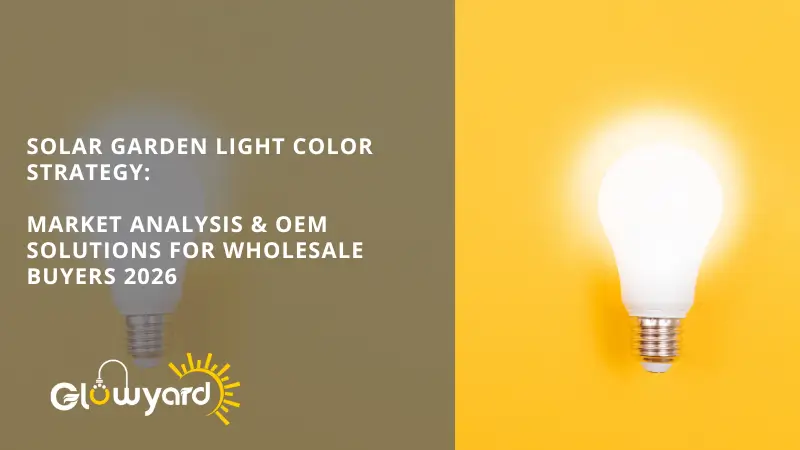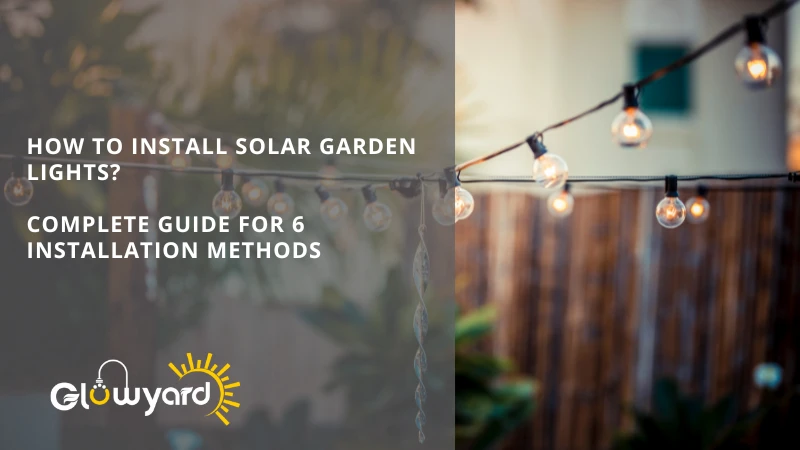Why CE Certification Matters for Solar Garden Lights: Essential for Safety and Quality
When purchasing solar garden lights, one crucial factor that often gets overlooked is the CE certification. As someone with over a decade of experience in manufacturing and exporting solar lights, I can tell you that ensuring the products you purchase are CE certified can save you from a multitude of potential issues. In this article, I’ll explain why CE certification is so important, how it ensures safety and quality, and why you should prioritize it when purchasing solar garden lights.
Recommended post for reading: What Certifications and Standards Should Reputable Chinese Iron Solar Light Manufacturers Comply With?

Premium Quality
What Does CE Certification Mean for Solar Garden Lights?
CE certification stands for Conformité Européene, which means "European Conformity" in French. It’s a symbol placed on products to indicate that they meet the required safety, health, and environmental protection standards of the European Union (EU). For solar garden lights, CE certification guarantees that the products comply with various EU regulations such as the Low Voltage Directive (LVD), Electromagnetic Compatibility (EMC) Directive, and RoHS (Restriction of Hazardous Substances) Directive.
Why Should You Care?
The main reason why CE certification is vital for solar garden lights is safety. These lights are electrical products, and as such, they must meet certain electrical safety standards to prevent accidents such as electrical fires or electrocution. In my experience, I’ve seen many buyers overlook this requirement, only to regret it later when their products malfunction or cause safety hazards.
CE certification also ensures that the solar garden lights are environmentally friendly. RoHS compliance, for example, guarantees that the lights don’t contain hazardous materials like lead, mercury, or cadmium. This not only protects the environment but also ensures that the lights can be safely disposed of at the end of their lifecycle.
Benefits of Choosing CE-Certified Solar Garden Lights
When it comes to solar garden lights, choosing CE-certified products comes with numerous advantages that make them a better investment in the long run.

CE Certificate for Solar Light
Recommended post for reading: What Certifications Are Required for Exporting High-Quality Solar Garden Lights?
1. Ensured Safety and Reliability
CE certification guarantees that the solar lights meet EU safety standards. These standards cover everything from the electrical components to the construction of the lights. As a result, you can rest assured that the lights will function as intended without the risk of electrical malfunctions or fires.
2. Longevity and Durability
One of the most common complaints I hear from customers is that their non-certified solar garden lights don’t last as long as expected. Often, these lights are made with cheaper components that fail prematurely. CE-certified lights are tested for durability and are made with high-quality materials designed to withstand outdoor conditions. This means they last longer, require fewer replacements, and ultimately offer better value for money.
Recommended post for reading: How to Improve the Durability of Plastic in Solar Garden Lights Under Outdoor Sun Exposure?
3. Legal Compliance and Peace of Mind
For businesses selling solar garden lights, CE certification is crucial for legal compliance. Without it, products cannot be legally sold in many markets, especially within the EU. As someone who has worked extensively with European clients, I can tell you that most buyers won’t even consider purchasing products that lack CE certification. This certification ensures that you’re legally protected, and it provides your customers with the peace of mind that they are buying products that meet industry standards.
Key CE Testing Requirements for Solar Garden Lights
The CE certification process for solar garden lights involves several tests to ensure the products meet the required safety, performance, and environmental standards. These tests are conducted by accredited third-party laboratories to confirm that the lights are safe for use and won’t cause harm to the environment.
1. Electrical Safety Testing (Low Voltage Directive – LVD)
Solar lights typically operate at low voltages (12V–24V) but must comply with LVD (2014/35/EU). Key tests include:
- Insulation Resistance: Prevents current leakage.
- Overload/Short-Circuit Protection: Safeguards against electrical fires.
- Temperature Rise Testing: Ensures components don’t overheat during operation.

Electrical Safety Testing (Low Voltage Directive – LVD)
2. Electromagnetic Compatibility (EMC) Testing
Solar lights must not interfere with other devices or be disrupted by external electromagnetic fields. Tests include:
- Radiated Emissions: Measures electromagnetic waves emitted by the light.
- Conducted Emissions: Checks interference transmitted through power lines.
- Immunity Testing: Evaluates resistance to external interference (e.g., radio frequencies).

Photo of Radiated disturbance

Photo of Radiated disturbance (30 MHz-1 Ghz)

Photo of Radio frequency Electromagnetic Fields
3. IP Rating (Ingress Protection)
Solar garden lights require IP44 or higher to withstand dust and water ingress. Testing involves:
- Water Jet Resistance: Simulates heavy rain.
- Dust Sealing: Validates protection against particulate matter.
4. RoHS Compliance
RoHS compliance ensures that solar garden lights do not contain hazardous substances such as lead, mercury, and cadmium. Compliance involves:
- Material Screening: XRF or ICP-MS testing of components.
- Supplier Documentation: Certificates confirming RoHS-compliant materials.

ROHS testing equipment for material analysis
5. Environmental Durability Testing
- UV Resistance: Ensures housing materials don’t degrade under sunlight.
- Thermal Cycling: Tests performance in extreme temperatures (-20°C to 50°C).
Step-by-Step CE Certification Process
Here’s a breakdown of the process for obtaining CE certification for solar garden lights:
- Identify Applicable Directives: LVD, EMC, and RoHS are mandatory.
- Design Compliance: Use certified components (e.g., batteries with overcharge protection).
- Pre-Testing: Conduct in-house tests for electrical safety and EMC.
- Third-Party Lab Testing: Engage accredited labs for formal validation.
- Technical Documentation: Compile test reports, design schematics, and user manuals.
- CE Declaration & Labeling: Affix the CE mark and submit compliance declarations.
Common Mistakes to Avoid
| Mistake | Solution |
|---|---|
| Ignoring IP Ratings | Design for IP44+ and validate through water/dust tests. |
| Overlooking RoHS | Screen all materials and retain supplier certificates. |
| Incomplete Documentation | Include detailed test reports, risk assessments, and compliance statements. |
| Skipping EMC Testing | Prioritize pre-compliance EMC checks during R&D. |
Preparing for Success: Best Practices
- Collaborate Early with Labs: Involve certification bodies during prototyping.
- Robust Quality Control: Implement batch testing for critical components (e.g., batteries).
- Clear User Manuals: Provide installation guidelines and safety warnings.
- Post-Market Surveillance: Monitor field performance and update designs as needed.
Conclusion
CE certification for solar garden lights is a multifaceted process requiring meticulous attention to electrical safety, EMC, and environmental standards. By understanding testing requirements, avoiding common errors, and preparing thorough documentation, manufacturers can unlock EU market access while delivering safe, reliable products. The CE mark not only opens doors to the European market but also builds consumer trust by ensuring compliance with the highest safety and environmental standards.
Are you looking for a Certified Solar garden lights supplier?
At Glowyard Lighting, we provide a wide range of garden lights with varying waterproof ratings to suit every need. From durable resin lights to sleek metal fixtures, we have the perfect solution for your outdoor lighting needs. Browse our collection today and find the ideal lighting solution for your garden.
If you’re a outdoor lighting distributor, retailer or brand owner who is looking for a certified & trusted solar garden lights manufacturer, feel free to reach out. We offer:
- Free samples for qualified buyers
- OEM & ODM for solar garden lights
- Full pre-shipment QC and warranty support
📩 Contact us today for the latest catalog and exclusive B2B offers.

Glowyard new solar garden light product launch with creative outdoor designs

